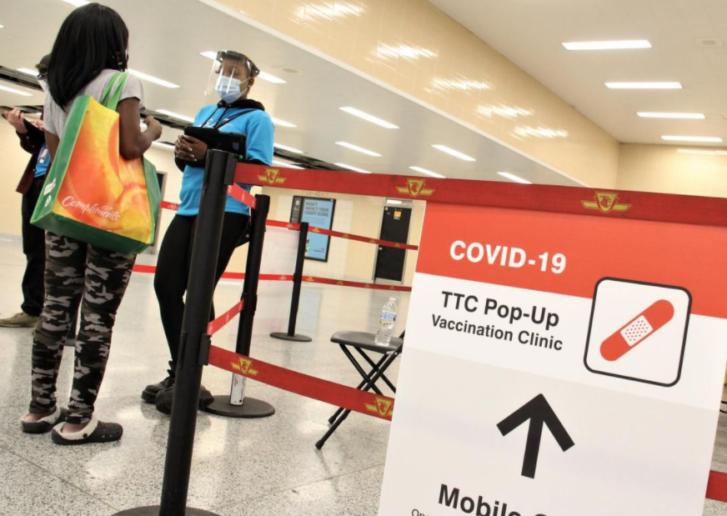Ontario is now recommending the Pfizer COVID-19 vaccine for adults aged 18 to 24 because of an “observed increase” in rare heart inflammation conditions after doses of Moderna, mainly in men.
The change announced Wednesday by the Ministry of Health was made “out of an abundance of caution” over a rise in cases of pericarditis and myocarditis. It takes effect immediately, but those in the age group can still get a shot of Moderna with informed consent.
“It was … my decision to make,” Dr. Kieran Moore, the province’s chief medical officer of health, told reporters at Queen’s Park.

“I hope the public will realize we are trying to be as transparent as possible,” said Moore, noting two of his three sons fall within that age cohort and received the Moderna vaccine and he had “no concerns about them having that product.”
“Vaccines are safe,” he emphasized.
Describing the new guidance as a “preferential recommendation,” Moore said there was a one in 5,000 risk of myocarditis or pericarditis for males aged 18 to 24 following a second dose of Moderna.
That compares with a risk of one in 28,000 for those who received Pfizer — about five times lower. The risk rates are based on more than 96,000 second doses of Pfizer and Moderna vaccines injected between June 1 and August 7.
Moore said the majority of heart cases were mild and diagnosed in hospital emergency rooms, although fewer than 10 people have been admitted to intensive care units for additional monitoring.
“Most of the time that’s for investigation, so taking a blood test, a cardiogram or an ultrasound. I just want to be clear we’ve had no fatalities whatsoever associated with this complication.”
Symptoms that could include chest pain, shortness of breath, irregular heartbeat, palpitations and general malaise typically start within a week, mainly after a second dose, and recoveries were quick after anti-inflammatory medications, such as ibuprofen, were given.
He said people are 18 times more likely to get myocarditis or pericarditis should they contract COVID and encouraged Ontarians to get vaccinated.
The change in recommendation is not expected to lead to shortages of Pfizer because there are 2.7 million doses available in the province. Ontario’s supply of Moderna does not expire until the end of October.
Just over 23,000 first doses and almost 15,000 second doses of vaccines were administered across the province on Tuesday, with 80.7 per cent of eligible Ontarians over age 12 fully vaccinated and 86 per cent half way there.
Full vaccination rates differ by health unit. The leader is the eastern Ontario region of Leeds, Grenville and Lanark district at 91 per cent. Toronto is at 78 per cent, Peel Region 79 per cent, York at 81 per cent, Durham 83 per cent, Hamilton 77 per cent, and Niagara 81 per cent.
Ontario reported 495 new COVID-19 infections Wednesday, lowering the closely watched seven-day moving average to 610, down almost 20 per cent from a recent peak of 757 on Sept. 5 as the fourth wave flattened throughout the month following a rise in August.
There were eight more deaths in Ontario bringing the pandemic’s total to 9,723.
Hospitalizations and intensive care unit admissions have also stabilized this month, with 292 COVID patients in hospital and 172 in ICU — including 123 or 72 per cent of them on ventilators to breathe.
Article From: The Star
Author: Robert Benzie, Rob Ferguson

